At Verum, our mission is to improve the lives of others by raising the bar on the wealth management industry. We try to do this by offering sophisticated yet approachable, fee-only services. We believe in aligning our interests with clients’, using a team approach, and relying on evidence-based planning and investing.
Why This Matters
Many people, including our friends, family, clients, and prospective clients, find the wealth management industry confusing. Ideally, all firms should be fee-only and fiduciary, just like attorneys, who are always fiduciaries and fee-only.
Common Questions We Receive
• “Does Verum do the same work as my neighbor who is an advisor at the local bank?”
• “How do you differ from teams at banks?”
• “Isn’t fee-based the same as fee-only?”
A Brief History
Wealth management originated from the stockbroker industry over 100 years ago. Initially, brokers earned commissions by facilitating stock transactions. As access to stocks became easier and cheaper, banks and insurance companies evolved, using their wealth management arms to sell various financial products. This led to a compensation structure focused on sales, often sidelining those who excelled in delivering advice but lacked sales skills.
In the 1960s and 1970s, financial planning emerged, primarily offered by law and accounting firms. This led to the creation of the Certified Financial Planner™ (CFP®) certification. Eventually, pioneers from the stockbroker industry saw a better way to deliver wealth management and formed Registered Investment Advisers (RIAs), which are fiduciaries and do not sell products for commissions. This merger of planning and investment services created the fee-only RIA wealth management industry.
The Future of Wealth Management
Today, fee-only RIAs provide sophisticated financial planning and high-quality investment services. We believe this model will continue to raise the bar on the industry. To achieve this, we need more high-quality competitors doing great work, and we need the public to understand what to look for in a wealth manager. We also need to build career paths where practitioners, rather than just sales-oriented professionals, can grow their skillsets and serve clients. Today’s wealth management industry has a talent shortage problem that will only worsen as the average age of an adviser continues to rise. (Today that average is, by some estimates, nearly 60 years old.) Some estimate that over 40% of advisers are expected to retire within the next decade.
Questions to Ask
- Is the firm an RIA with no other legal structure (e.g., broker-dealer)?
- Some firms also operate as broker-dealers, which allows them to sell financial products for a commission. When a firm wears both hats, there’s a risk they may not always provide advice that’s in your best interest because they have an incentive to sell products. It’s important to ensure that your wealth manager is solely structured as an RIA, so they are always required to act in your best interest without conflicting incentives.
- Is the firm independent of any financial institution (bank, brokerage, insurance)?
- Independence is crucial because it means the firm is not tied to a larger bank or insurance company, which could create conflicts of interest. For example, a bank-affiliated wealth manager might push certain products—like bank mortgages or proprietary insurance policies—because they have incentives tied to cross-selling those products. An independent firm, however, has no such affiliations, meaning it can offer unbiased advice and select the best products or strategies for you, without worrying about meeting corporate sales targets.
- Is the RIA fee-only?
- A fee-only wealth manager charges you directly for their services, typically through a percentage of assets under management or an hourly rate or flat fee. They do not earn commissions for selling products, which removes any financial incentive to steer you toward specific investments or insurance products. By contrast, advisers who are not fee-only may receive compensation through commissions on sales of insurance, mutual funds, or other financial products (like loans or mortgages), which can lead to conflicts of interest. By removing these conflicts of interest, it can free up an adviser to provide impartial advice focused on your financial goals and objectives.
Some advisers from banks, insurance firms, or non-fee-only firms claim they take on conflicts of interest to provide access to certain products. This is misleading. Fee-only firms often have access to the same, similar, or even better products, but are not motivated to increase revenue by upselling. The fee-only firm focuses on finding the best solutions at the lowest cost.
Verum is committed to spreading the word about the benefits of fee-only advisers and helping other advisers adopt this model. Our ultimate goal is for all wealth management to be fiduciary and fee-only, eliminating the need to distinguish between fee-only and other models.
The information provided is for educational and informational purposes only and does not constitute investment advice and it should not be relied on as such. It should not be considered a solicitation to buy or an offer to sell a security. It does not take into account any investor’s particular investment objectives, strategies, tax status or investment horizon. You should consult your attorney or tax advisor. The views expressed in this commentary are subject to change based on market and other conditions. These documents may contain certain statements that may be deemed forward looking statements. Please note that any such statements are not guarantees of any future performance and actual results or developments may differ materially from those projected. Any projections, market outlooks, or estimates are based upon certain assumptions and should not be construed as indicative of actual events that will occur. For additional information, please visit: https://verumpartnership.com/disclosures/
Be the First to Know
Sign up for our newsletter to receive a curated round-up of financial news, thoughtful perspectives, and updates.
"*" indicates required fields
